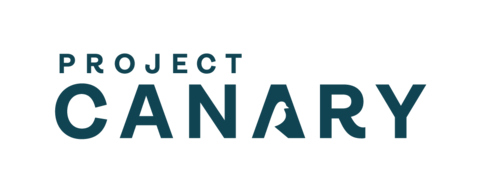Project Canary and METEC Partner to Improve and Validate Novel Forward Dispersion Simulator
Project Canary and METEC Partner to Improve and Validate Novel Forward Dispersion Simulator
Project Canary to refine parameters and tune the model, METEC to perform independent evaluation and validation
DENVER--(BUSINESS WIRE)--Project Canary, an enterprise emissions intelligence platform that helps energy leaders identify, measure, understand, and act to reduce GHG emissions, and Colorado State University’s Methane Emissions Technology Evaluation Center (METEC) today announced their collaboration to improve and validate a first-of-its-kind web-based high-fidelity dispersion simulator tool to visualize the dispersion of gases released from one or multiple sources and ultimately assist in the quantification of total site emissions.
Developed by Project Canary, the simulator uses knowledge gained from approximately a year of controlled release testing and working with operators to quantify emissions at 200+ oil and gas production and midstream facilities throughout North America. The project's goal is to develop accurate and transparent methods for emissions quantification, which are critical to generating credible GHG emissions information in response to the increasing demand by national governments, investors, the market, insurance firms, and society.
The tool offers a user-friendly environment to modify a wide range of variables impacting the dispersion of gases, allowing users to observe the impact of pollutant dispersion on concentration levels at user-defined receptor locations. Variables include wind speed, wind direction, site obstructions, atmospheric stability classes, number of sources, and emission rates from different sources.
Users can also select from three modeling methods, including Gaussian plume, advection-diffusion, and Navier-Stokes, to view the difference in dispersion resulting from various modeling methods.
Project Canary will be responsible for parameter tuning and model improvements, while METEC will perform independent evaluation and validation of the model using single-blind controlled releases. The data generated at the METEC facility will be fed into the model to independently validate its performance.
“Our work with Project Canary will provide data to help refine their simulator to generate representative concentration data at receptor locations,” said Stuart Riddick, Research Scientist at METEC. “Measurement data collected downwind of controlled methane releases at the METEC facility will be used to tune their model in changing environmental conditions over simple and complex aerodynamic landscapes.”
“This collaboration is paving the way for a more comprehensive understanding of gas dispersion,” said Will Foiles, Co-Founder of Project Canary. “We value the peer-review process as a key step in building transparency and credible emissions quantification.”
About Project Canary
Project Canary is a climate technology company that offers an emissions intelligence data platform that helps companies identify, measure, understand, and act to reduce emissions across the energy value chain. Given its outsized impact, the Company started with methane and has since expanded to other greenhouse gases. Project Canary’s mission is to Measure It – leveraging sophisticated software solutions to help companies improve and report on their emissions footprint. They do this by building high-fidelity sensors, ingesting data from various other technologies and sources, characterizing the accuracy of such emissions data, and deploying advanced physics-based AI-powered models to identify leaks and quantify emissions.
About METEC
The Colorado State University’s Methane Emissions Technology Evaluation Center (METEC) focus is improving methane detection, quantification, and modeling systems to help advance programs that reduce methane emissions. METEC accomplishes this through testing and training at its Foothills location and through its extensive research program. Many next-generation emission measurement methods rely on wind transport of emissions to allow leak detection from a distance, using point, line, or imaging sensors. To support leak detection and quantification testing, METEC was designed to emulate the emissions behavior and wind transport characteristics of operational upstream and midstream oil and gas facilities. The facility supports a range of well pad sizes, some compressor equipment, and associated access roads. To date, METEC has tested more than 50 methane emissions detection solutions.
https://energy.colostate.edu/metec/
Contacts
Ali Lashgari, Senior Scientist, Project Canary
ali.lashgari@projectcanary.com
Stuart Riddick, Research Scientist, CSU METEC
Stuart.Riddick@colostate.edu
Project Canary Media Inquiries
mediainquiries@projectcanary.com

